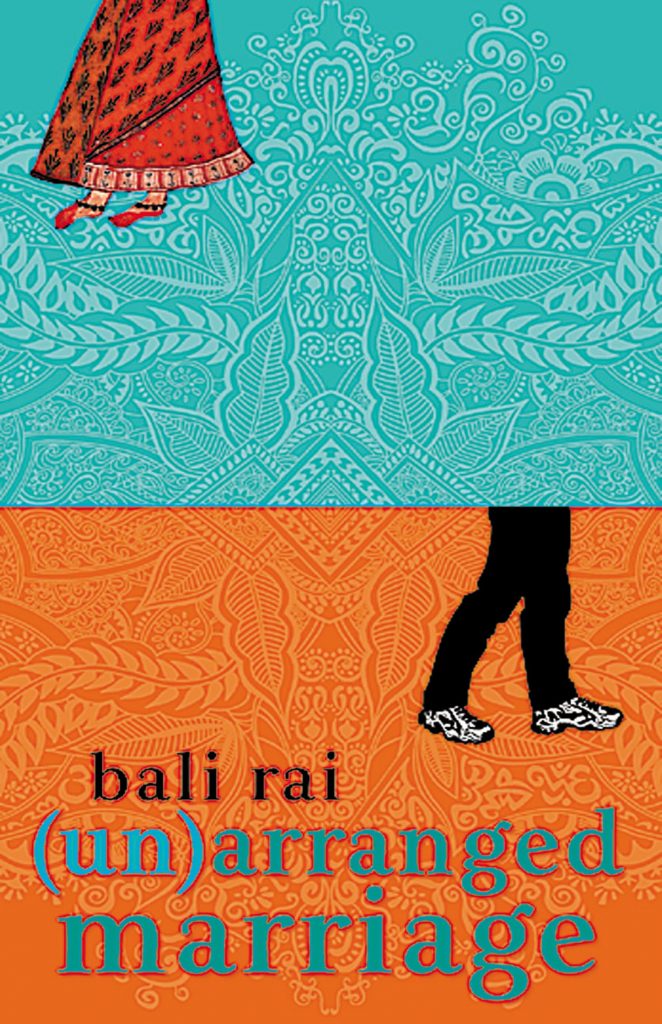Bali Rai, award-winning author of (Un)arranged Marriage discusses his journey towards becoming a published author and why many of his bestselling novels are set in Leicester.
Ever since he was young, Bali was certain that he wanted to become a writer. So at the age of seven, he took his favourite book, Roald Dahl’s ‘James and the Giant Peach’, and rewrote his favourite parts- just with Bali in place of the protagonist. The resultant masterpiece was a book he titled ‘Bali and the Giant Peach.’ Immensely proud of his first-ever creation, Bali presented his story to his English teacher.

“She laughed at me and said ‘You can’t copy Mr Dahl. You have to write your own stories!”
But who would want to read Bali’s “own story”? For Bali, the only books he had read growing up were those written by rich white people coming from rich white places, about more rich white people coming from rich white places. Voltaire once cleverly said: “The most original writers borrowed one from another.” But what if there was no “another”?
It was only after he read ‘The Secret Diary of Adrian Mole’ (1982) by Sue Townsend, that Bali realised, perhaps his stories were also worth writing about…
Much like Bali, Adrian Mole was a character who grew up in Leicester, went to school there and walked the very same streets that he himself had walked on.
“Before Townsend, I didn’t think it was okay to write a book set in Leicester. After reading her book, I realised that you could write about the next-door neighbours. That is when I decided to write about my family, friends, teachers and school- basically, my life,” he revealed.
Rai’s debut novel, (Un)arranged Marriage (2001) presented the story of Manjit, a British-Punjabi boy from Leicester whose parents leave him in India to force him into an arranged marriage. Having always been told that he wasn’t quite English enough, but never quite feeling like India was his homeland either, Bali wanted to represent the voices of those who checked both boxes, or sometimes felt like they belonged to neither. He wanted to show people another way of being British.

“People are always talking about what it is like to be Indian, Pakistani, or even British. But what they don’t realise is that there are people who fall in between. Those who have added ‘Britishness’ to their parent’s culture to create their own separate identities.”
Soon after his debut, Bali published his most exciting yet challenging novel – Rani and Sukh (2004), a classic Romeo and Juliet tragedy but with the mirch masala of two warring Punjabi households. For the first time, Bali challenged himself by writing from the female character’s perspective. He found it extremely liberating to write as someone else and to immerse himself in the life and feelings of another human being.
When asked about how he achieved such a feat, he shrugged his shoulders and said: “I’m a human writing about other humans. Feelings like love and unhappiness are all universal human feelings. I focus on the feelings of the character rather than what they physically look like.”
Bali’s sole aim as a writer is to write his characters as honestly as he can, “warts and all”. While this has raised many eyebrows, Bali’s justification was: “You must know that you can’t always please everyone. Someone, somewhere, will always disagree with you. The most you can do is write as honestly as you can and remain true to yourselves.”
In a world where publishers are tragically blind to diversity and artists are being rendered jobless, Bali considers it to be his greatest accomplishment and privilege to continue being a full-time author even after publishing 55 titles in the last 22 years.
“In our schools, it’s all science and math and tech. But what about photography? What about throwing paint on a wall? Running through a field? Children nowadays don’t have the space to be creative and constantly feel different for not doing what others do. You are not destined to do what they do. You are destined to do what you do,” he says.
Today, Bali continues to live in Leicestershire with his two daughters. There, in his messy garage-turned-workspace filled with his collection of a thousand reggae records, he is continuing his journey towards writing the unheard voices of Britain. Currently, he is working on a novel based on the Ricky Reels murder case, alongside one on the forgotten story of suffragette Princess Sophia Duleep Singh.
“There are always unheard voices. There is always another story to tell. As long as there are unheard voices for me to discover, think about and feel– I’ll always have something to write about.”



